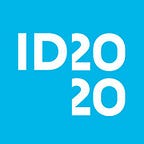Last week, we participated in the World Economic Forum’s Annual Meeting in Davos, Switzerland. Conversations throughout the week highlighted just how far we — and the broader conversation about digital identity — have come over the past year.
A year ago, we participated as an advocate, presenting the opportunity for digital identity to materially improve the lives of billions and rallying others to our vision of a secure, privacy-protecting and portable digital identity. This year, the conversation had visibly shifted — digital identity was a thread throughout WEF programming, broad organizations advocated for the importance of digital identity for inclusion and empowerment, and new, supportive initiatives were kicked off — and ID2020 is poised to tangibly implement that vision.
There were many highlights throughout the week, but a few in particular stand out.
Firstly, we were absolutely thrilled to formally announce new members in the ID2020 Alliance: Microsoft, Mercy Corps, the UN International Computing Center (UNICC), and Hyperledger.
Universal access to digital identity requires innovation, partnership, and deep commitment amongst diverse stakeholders. The ID2020 Alliance brings together development organizations, private sector companies, governments and NGOs around a pooled fund, used to implement high-impact digital identity programs, and a clear governance model. Alliance partners work together to define technical requirements, ensuring that the technologies developed are interoperable and responsive to the needs of both individuals and institutions, and to prioritize and structure pilot projects for scale, impact, and replicability.
We couldn’t be more excited to have these organizations join us as we move towards pilot project development this year and beyond.
[I]t’s exciting to imagine a world where safe and secure digital identities are possible, providing everyone with an essential building block to every right and opportunity they deserve…To say that we were encouraged by [ID2020’s] mission would be an understatement. We were inspired by it. — Peggy Johnson, Executive Vice President, Business Development, Microsoft
[R]efugees displaced for six months are highly likely to be displaced for a minimum of three years and average of 17. That’s why Mercy Corps is committed to alliances like ID2020 and partnerships with national governments, the United Nations and the private sector to ensure people have safe access to a personal identity. — Neal Keny-Guyer, Chief Executive Officer of Mercy Corps
The technology community has long used open standards, open source software, and open networks as a way to coordinate and cooperate. We’re excited to be helping ID2020 apply these techniques to such an urgent and global issue. — Brian Behlendorf, Executive Director of Hyperledger
Throughout the week, it was exciting and inspiring to see a broad range of organizations advocating for digital identity as an issue at the top of their agendas, demonstrating the cross-cutting relevance of digital identity across diverse sectors including health, education, and finance.
We hosted a breakfast roundtable discussion with Microsoft on “The Promise of Digital Identity”, which brought together an impressive group of people from public and private organizations and showcased Microsoft’s commitment to creating universal access to identity. The discussion centered around the potential for digital identity to empower individuals, and the necessity of public-private collaboration to realize this promise.
The breakfast highlighted how the involvement of multinational companies and international organizations in the development of technical standards and supporting policies paves the way for broad recognition of an individual’s digital identity by the various organizations with which he or she may interact, providing access to the rights and services an individual is entitled to, including those provided by national governments.
Furthermore, participants explored how a “functional” identity, one which allows individuals to accumulate verifiable attestations from diverse sources, can unlock access to necessary services. This approach is complementary with national identity systems — an individual’s state-issued credentials carry a significant level of assurance — and would often be one of the many associate credentials, but it also protects an individual’s fundamental right to assert his or her identity without reliance on a single institution.
The following day, Gavi, the Vaccine Alliance, hosted their own breakfast, where they announced digital identity as the focus for the 2018 INFUSE program. The INFUSE (Innovation for Uptake, Scale and Equity in Immunisation) program identifies innovations that have the potential to improve vaccine delivery and provides capital and expertise to help take them to scale.
One in five children in Gavi-supported countries do not receive a full course of the most basic vaccines. One reason for this gap is that an increasing number of people live under the radar. — Gavi INFUSE 2018
Improving registration in Gavi-supported countries is critical to improve vaccination coverage rates and ensure that every child receives the full course of recommended vaccines. We are looking forward to working with other innovators in the digital identity space through the INFUSE program.
Lastly, we were honored to be recognized as one of Accenture’s “Ones to Watch: Leaders Shaping the Future of Technology and the World”. The event, co-hosted with Web Summit, brought together an impressive group of innovators, investors, thought leaders, change-makers and CEOs tackling some of the most challenging societal problems. It was a pleasure to participate in this discussion and hear from others actively using technology and innovation for purposeful and meaningful change.
The conversations around digital identity at Davos demonstrated its broad importance for individuals and institutions, and across industries and sectors. We are energized by the deepening commitment to digital identity we saw last week and in the growing participation in the ID2020 Alliance, and look forward to continuing to work towards pilot implementation with our partners this year.
And we’re hiring! Our team is growing, and we currently have two open positions on our website, a Chief Architect and Program Manager. And if you don’t see a job listed that sounds like the perfect fit, but think you could be a valuable member of the team, send us an email at info@id2020.org.
